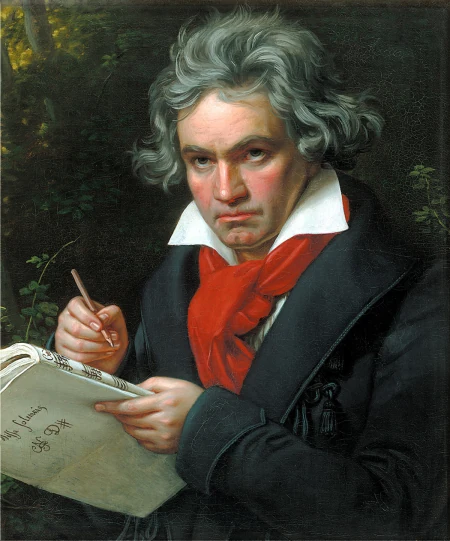Feel free to change my music
I write music for other people to perform, particularly choral music. This has lead me to spend a lot of time thinking about the peculiar social arrangement of making music with a separate composer, performer, and audience. My impression of the relationship between composer and performer is that we often give the composer too much authority over music-making events they are not actively a part of.
The history of classical music is often presented as a canon of great composers, whose works are sacred expressions of their singular souls. I don’t strictly disagree with this framing: individuals have written some incredible music, and great music is always an expression of its author. But this narrative can foster an attitude which elevates the composer’s artistic expression above all else. This supports a model of performance in which the performer’s responsibility is to convey the intent of a greater artist as purely as possible. The performer in this case is like a speaker reproducing the composer’s intention, and their quality is measured primarily in the effectiveness of the reproduction.

Personally, I think the composer’s part in the process is done once they commit the music to the page (ignoring cases where the composer is also a performer of the music). A composition is not music in itself: it is an abstraction, whereas the performance is where the music becomes concrete. When performing, the performer actively chooses to play or sing whatever notes they do. If they are playing music written by someone else, ideally it should be because they can make that music their own authentic expression in that moment. If they cannot, if they think something different would be better, then they should choose to do that instead.
I sometimes describe what I do as a composer as “writing plans for what I think people should do when they get together to sing.” This more accurately describes how I think about the role of a composer: their role is to present possibilities to performers, and then leave it up to them.
Because of this, I am generally alright with alterations being made to existing music. At the very least, I judge a change on its own merits, rather than opposing it on the grounds of respect for the composer’s intentions. Clearly, someone like Beethoven made a lot of good choices when writing his music, so it will be hard to change it and get better results. At the same time, I don’t see why anyone’s composition should be above question if it leads to more authentic music-making.
Do you think performers should be free to make changes to the music they perform?
Do you think this is a fair framing of the act of composition?
Do you have other ideas about the relationship between composer, performer, and audience?
Let me know your thoughts at my Ctrl-C email: gome @ ctrl-c.club.